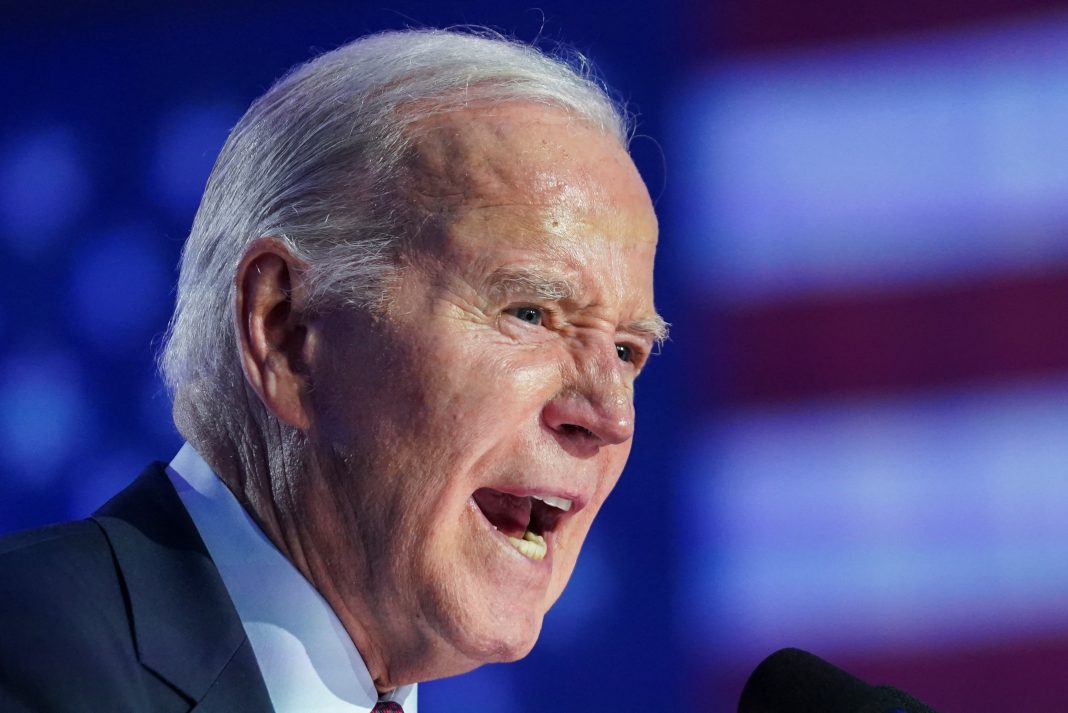 Israel’s Prime Minister, Benjamin Netanyahu, is facing increasing pressure from both Israelis and his far-right allies after U.S. President Joe Biden announced a proposed agreement to end the fighting in Gaza. While many Israelis are urging Netanyahu to embrace the deal, far-right allies are threatening to collapse his government if he does. Netanyahu has referred to a permanent ceasefire in Gaza as a “nonstarter” until certain conditions are met for ending the war. This stance appears to undermine the proposal described by Biden as an Israeli one.
Israel’s Prime Minister, Benjamin Netanyahu, is facing increasing pressure from both Israelis and his far-right allies after U.S. President Joe Biden announced a proposed agreement to end the fighting in Gaza. While many Israelis are urging Netanyahu to embrace the deal, far-right allies are threatening to collapse his government if he does. Netanyahu has referred to a permanent ceasefire in Gaza as a “nonstarter” until certain conditions are met for ending the war. This stance appears to undermine the proposal described by Biden as an Israeli one.
A massive demonstration took place in Israel on Saturday night, led by families of hostages held by Hamas, urging the government to take action. Mediators from the U.S., Egypt, and Qatar have been pressing Israel and Hamas to accept the proposed deal, which they believe offers a road map for a permanent ceasefire and an end to the crisis. The deal also promises immediate relief for both hostages and Gaza residents.
However, Finance Minister Bezalel Smotrich and Minister of National Security Itamar Ben Gvir, both from the far-right, have stated that they would break up the government if it accepts the proposed deal. This could potentially lead to new elections for Netanyahu and expose him to scrutiny over security failures that led to the war. Furthermore, if he loses the prime minister post, he may face prosecution on longstanding corruption charges.
Netanyahu’s statement emphasizes that Israel’s conditions for ending the war remain unchanged: the destruction of Hamas’ military and governing capabilities, the release of all hostages, and ensuring that Gaza no longer poses a threat to Israel. According to the proposal, Israel will continue to insist that these conditions are met before a permanent ceasefire is implemented.
In a separate development, Netanyahu has accepted an invitation from U.S. congressional leaders to deliver an address at the Capitol. This move is seen as a show of support for Israel while the U.S., as a top ally, expresses frustration. However, no date has been set yet for the address.
President Biden asserted on Friday that Hamas militants are “no longer capable” of carrying out a large-scale attack on Israel, like the one on October 7. He called on Israel and Hamas to reach an agreement to release the remaining hostages and the bodies of those who have died, thus extending the ceasefire.
Talks on a deal were halted last month in an attempt to prevent a full-scale Israeli invasion of Gaza’s southern city of Rafah. Israel believes that this operation is crucial to uprooting remaining Hamas battalions, even as the militants regroup elsewhere in the territory.
Israel confirmed on Friday that its troops were operating in central parts of Rafah. As a result, around 1 million Palestinians, almost half of Gaza’s population, have fled Rafah, and living conditions there have been described as “horrific and apocalyptic” by the U.N. World Food Program due to growing hunger.
The families of hostages have expressed urgency, stating that time is running out. They had an aggressive meeting with Israel’s national security adviser, Tzachi Hanegbi, who informed them that the government was not ready to sign a deal to bring all the hostages home and that there was no plan B. Many families accuse the government of lacking the will to secure the release of their loved ones.
The proposed deal presented by Biden consists of three phases. The first phase would last for six weeks and include a full ceasefire, a withdrawal of Israeli forces from densely populated areas of Gaza, and the release of certain categories of hostages, such as women, older people, and the wounded, in exchange for the release of hundreds of Palestinian prisoners.
The second phase would involve the release of all remaining living hostages, including male soldiers, and the withdrawal of Israeli forces from Gaza. Finally, the third phase would focus on the major reconstruction of Gaza, which has suffered extensive damage from the war.
Biden acknowledged that keeping the proposal on track would be challenging, as there are still details to negotiate to move from the first phase to the second. He emphasized that if Hamas fails to fulfill its commitments under the deal, Israel can resume military operations.
Hamas has responded positively to the proposal and called on Israel to make an explicit commitment to an agreement that includes a permanent ceasefire, a complete withdrawal of Israeli troops from Gaza, a prisoner exchange, and other conditions.
In Deir al-Balah, where many Palestinians have sought refuge following Israel’s assault on Rafah, there is cautious hope regarding the proposed deal. Akram Abu Al-Hasan stated that though the proposal came late, it is better late than never.
Analysts note that the main difference in this proposal compared to previous ones is the readiness to halt the war for an undefined period. This approach allows Israel the option to renew the war if necessary and diminish Hamas’ ability to govern over time.
The proposed deal has been well-received by Gershon Baskin, the director for the Middle East at the International Communities Organization, who believes that Biden’s speech was a strong message directly to the Israeli people.
In another development, officials from Egypt, the United States, and Israel are set to meet in Cairo regarding the Rafah crossing, a critical entry point for aid that has been closed since Israel took control of the Palestinian side in May. Egypt has refused to open its side, fearing that Israel’s control will become permanent.
It is important to note that Hamas’ attack on October 7 resulted in the deaths of approximately 1,200 people, mostly civilians, and the abduction of around 250 individuals. The war has taken a heavy toll on Gaza, with Gaza’s Health Ministry reporting that over 36,370 Palestinians have been killed by Israel’s offensive. Unfortunately, this count does not differentiate between civilians and combatants.
As the situation continues to unfold, it remains to be seen how Netanyahu will navigate the mounting pressure to accept the proposed deal and how it will impact his political future.


